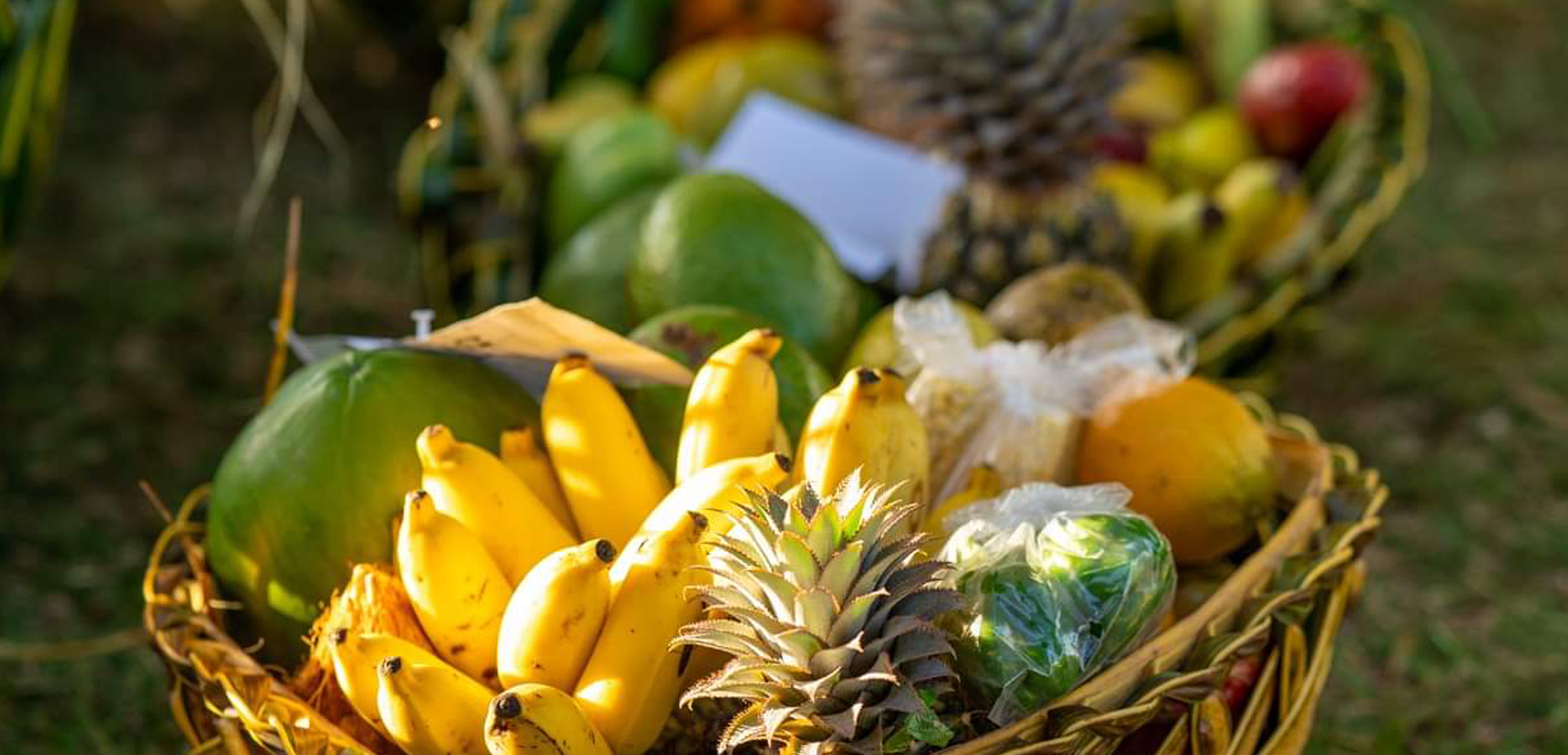November 2019
Improving Food Security and Nutrition

Agriculture is central to our food and health systems IMAGE: Jean Pierre Niptik
Agriculture has a phenomenal impact on the quality of life.
Unless it makes the agenda on health and economic platforms, Karen Mapusua forecasts a losing war on food security and nutrition across the Pacific.
“Agriculture is a significant contributor to global warming, deforestation, loss of biodiversity and it’s damaging our fisheries.”
“It impacts our food and health system, so I say to farmers we can either be the best friend of the planet or we can be the worst enemy and we need to work out where we want to sit in that picture,” she said.
The Manager Operations, Performance and Systems at the Pacific Community’s Land Resources Division said most health and economic platforms in the Pacific often underestimate the impact of agriculture.
“Every government will say it’s the backbone of the economy but agricultural ministries are always often underfunded.”
“Agriculture shouldn’t be an afterthought, it is central to our food system and it should be central to all our policies,” she said.
“It’s only when people start to make the connections between agriculture and the big issues between climate change, disaster risk reduction and health that I think perception will change.”
In the Pacific region where more than 50 percent of the population are overweight, about 40 percent of the region’s 9.7 million have been diagnosed with a non-communicable disease including cardiovascular disease, diabetes and hypertension according to World Health Organisation.
Mapusua said Pacific islanders are eating themselves to death.
“We are very price sensitive consumers in the Pacific.”
“If the taro is $15 Samoan Tala and the rice is $10 Samoan Tala, we’ll buy the rice,” she said.
“That’s because we don’t have a lot of cash in our pockets and it’s a big issue when it comes to access to food.”
“We all know we have plenty food in the Pacific but can we afford to buy the good quality food? Or are we going to buy noodles which is barely food at all?,” she said.
Mapusua says agriculture needs to make the agenda on health and economic platforms.
“By the end of the decade most of us would have diabetes and that’s just the reality of our health in the Pacific.
“We all die far too young from diseases we shouldn’t be dying from and they are largely diet related,” she said.
“Ofcourse there are other aspects as well but the change in our diets has had significant impact.”
Mapusua says consumption of imported processed foods in the Pacific is taking its toll on children.
“The reality is, pre-colonization we ate a lot more of our local nutritious vegetables than we do now.”
“Now when we think about vegetables, we think about lettuce which has no nutritional value,” she said.
“We’re seeing increasing rates of micronutrient deficiencies particularly in children which means they’re stunting.”
“It not only affects the size of the body but the brain development and these rates are increasing across Pacific island countries.”
Mapusua says there are however unresolved issues with traditional based diets.
“We have a lot of local greens that we don’t eat anymore that would help us address these micronutrient deficiencies.”
“But now we have a behavioral problem because people haven’t eaten it for a while, so how do you get that taste back and re-introduce it to people so that it becomes part of the diet?,” she said
The use of and exposure to pesticide has also in recent years been linked to many health issues.
“It’s not something we think about a lot because we tend to believe in the Pacific that we’re all organic.”
“Some countries in the Pacific where access is more difficult use so many chemicals that insects are now resistant to it,” she said.
“You’ve got farmers reaching out for a cocktail of various different pesticides and spraying not just when they see a pest, but spraying every couple of days which only builds more resistance to the pests and makes life impossible long-term.”
“Exposure to pesticides either inevitable through what we eat or the farmers is a health risk from agriculture I don’t think we are taking seriously enough,” she said.
